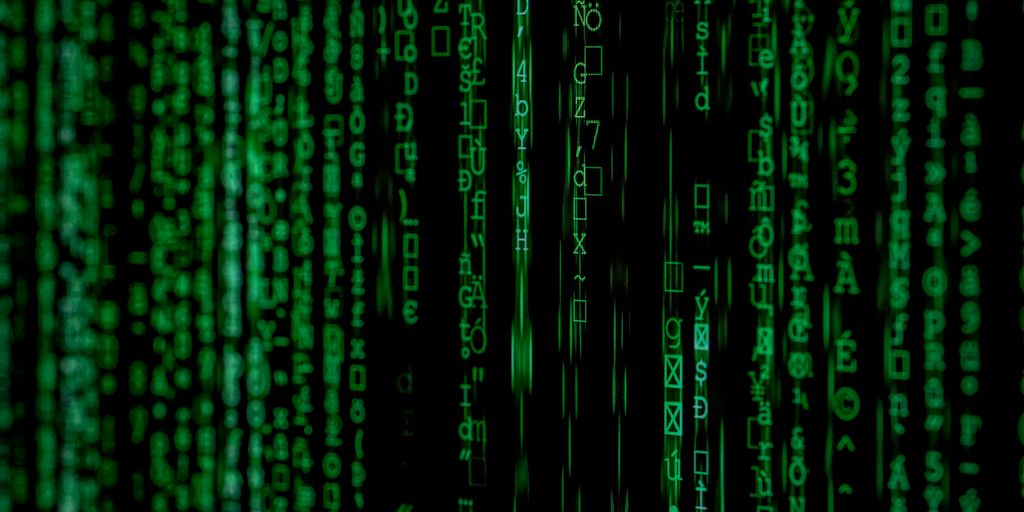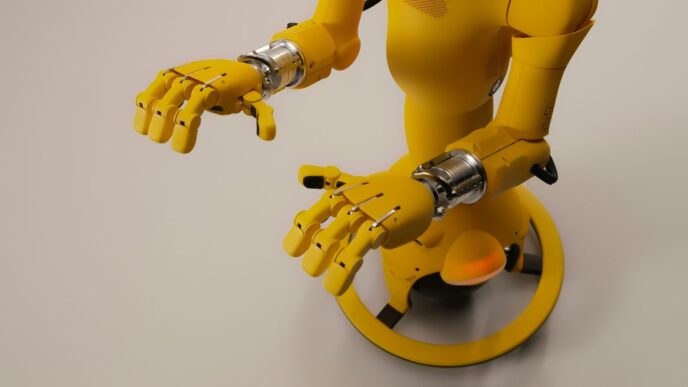Deepfake technology is getting pretty good, and it’s making us think about some tricky legal stuff here in the US. These fake videos and audio clips can look super real, which means they can cause some big problems, like messing with someone’s reputation or even leading to fraud. This article will look at the current rules and laws around deepfake legality, checking out how old laws apply and what new ones are popping up to deal with this tech.
Key Takeaways
- Old laws, like those about defamation and protecting your image, can sometimes apply to deepfakes, but it’s not always a perfect fit.
- Some states are already making their own laws about deepfakes, and there’s talk about new federal rules too, showing that deepfake legality is a growing concern.
- If deepfakes are used to trick people or pretend to be someone else for money, that can lead to serious fraud and identity theft charges.
- You can help protect yourself online by using strong passwords and being careful about what apps you let access your stuff.
- If you’re dealing with a deepfake issue, it’s a good idea to talk to a lawyer who knows about online content and your rights regarding deepfake legality.
Understanding Deepfake Legality Through Existing Laws
So, you’re probably wondering how the law even begins to deal with deepfakes, right? It’s not like there’s a "Deepfake Law" that covers everything. Instead, lawyers and courts have to look at existing laws and try to fit these newfangled AI creations into old legal boxes. It’s kind of like trying to put a square peg in a round hole, but sometimes it works. The main areas they look at are defamation, right of publicity, and intellectual property. It’s a bit of a patchwork, but it’s what we’ve got for now.
Defamation Laws and Deepfakes
When we talk about defamation, we’re basically talking about false statements that hurt someone’s reputation. Think about it: if a deepfake shows someone doing something they never did, and it makes them look bad, that’s a pretty clear case of a false statement. The big hurdle here is proving that the deepfake was made with actual malice, especially if the person is a public figure. That means showing the creator knew it was false or acted with reckless disregard for the truth. For regular folks, it’s a bit easier, but still, you have to show it was false, it was published, and it caused harm. It’s not just about making someone look silly; it has to genuinely damage their standing.
Right of Publicity Laws and Likeness Protection
This one is all about your image and how it’s used. Basically, you have a right to control how your name, voice, and likeness are used, especially for commercial stuff. If someone makes a deepfake of you endorsing a product you’ve never even heard of, that’s a pretty clear violation of your right of publicity. It’s like they’re stealing your identity for profit. These laws vary a lot from state to state, so what might be a strong case in California could be a non-starter in, say, Wyoming. It’s a bit of a legal minefield, and it’s definitely an area where deepfakes are pushing the boundaries of what these laws were originally designed for. For more information on how states are tackling this, you can look into state-specific anti-deepfake legislation.
Intellectual Property Infringement Concerns
Now, intellectual property is a whole different ballgame. We’re talking about copyrights and trademarks here. If a deepfake uses copyrighted material without permission—like a famous movie scene or a song—that could be copyright infringement. And if it uses a company’s logo or brand name in a way that confuses people or suggests an endorsement that isn’t real, that’s trademark infringement. The tricky part with deepfakes is figuring out who owns what, especially when AI is doing a lot of the creating. It’s not always clear if the AI itself is infringing, or the person who prompted it, or even the data it was trained on. It’s a mess, honestly, and the courts are still trying to sort it all out. It’s a constant game of catch-up between technology and the law.
Specific State and Federal Deepfake Legality Measures
State-Specific Anti-Deepfake Legislation
It’s pretty clear that states are starting to get serious about deepfakes. We’re seeing a bunch of new laws pop up, trying to get a handle on this stuff. For example, California has laws on the books that specifically target deepfakes used to mess with elections or create non-consensual explicit content. Texas also made it a crime to create or share deepfake videos if they’re meant to hurt someone. These laws show that states are trying to protect people from the bad things deepfakes can do. It’s a patchwork, though, with some states having more robust protections than others. You can check out a deepfake legislation tracker to see what’s happening across the country.
Proposed Federal Deepfake Accountability Act
While states are doing their own thing, there’s also talk at the federal level. The DEEPFAKES Accountability Act, for instance, has been proposed. It’s not law yet, but it definitely signals that Congress is paying attention to how AI-generated content, especially deepfakes, can be misused. This proposed act aims to create a framework for holding people accountable when they use deepfakes for malicious purposes. It’s a big step, and if it ever passes, it could really change the game for how deepfakes are regulated nationwide. It would provide a more unified approach, which is something many people think we need.
Cyber Harassment Laws and AI-Generated Images
Cyber harassment laws are also evolving to keep up with AI-generated images. It’s a tricky area because these images can be super realistic, even if they’re totally fake. When someone uses AI to create fake images of people without their permission, especially if those images are explicit or meant to defame, it falls under cyber harassment. Some places are even making specific laws to criminalize the creation and sharing of these kinds of AI-generated images. It’s all about protecting people’s reputations and privacy in a world where technology is moving really fast. The legal system is trying to catch up, but it’s a constant race.
Deepfake Legality in Cases of Fraud and Impersonation
Deepfakes, those super realistic fake videos or audio clips, are not just for funny memes anymore. They’ve become a serious tool for bad actors looking to scam people. When someone uses a deepfake to pretend to be you, or someone else, to get money or sensitive info, that’s where the law steps in. It’s a pretty messy area because the tech moves so fast, but the legal system is trying to catch up.
Fraud and Identity Theft Implications
When deepfakes are used to trick people into giving up money or personal data, it falls squarely into fraud and identity theft territory. Think about it: if a deepfake of your boss calls you and tells you to wire money to a new account, and you do it, that’s fraud. Or if someone creates a deepfake of you to open credit cards in your name, that’s identity theft. The scary part is how convincing these fakes can be, making it really hard for the average person to tell what’s real and what’s not.
Here’s how deepfakes can play into these crimes:
- Phishing and Social Engineering: Deepfake audio or video can make phishing attempts way more believable, like a fake video call from a bank representative asking for your login details.
- Account Takeovers: If a deepfake can bypass biometric security or convince customer service reps, it could lead to someone taking over your online accounts.
- Loan and Credit Card Fraud: Impersonating someone with a deepfake could allow criminals to apply for loans or credit cards in their victim’s name.
Impersonation and Financial Gain
Using a deepfake to impersonate someone for financial gain is a big deal. It’s not just about stealing money; it’s about stealing trust and identity. This kind of activity can lead to serious criminal charges. The law looks at the intent behind the deepfake. Was it made to deceive someone for money? If so, that’s a problem. It’s not just about the act of creating the deepfake, but how it’s used.
Consider these scenarios:
- A deepfake of a CEO authorizing a fraudulent transaction.
- Someone using a deepfake of a celebrity to promote a fake investment scheme.
- A deepfake of a family member asking for emergency funds.
These situations highlight how deepfakes can be weaponized for illicit financial gain, making it harder to protect your digital identity with advanced security systems.
Criminal Penalties and Civil Liability
If you’re caught using deepfakes for fraud or impersonation, you’re looking at some pretty heavy consequences. We’re talking about both criminal penalties and civil liability. On the criminal side, you could face jail time and hefty fines, depending on the severity of the fraud and the amount of money involved. Identity theft, especially, carries significant penalties. On the civil side, the victim can sue you for damages, which could include financial losses, emotional distress, and legal fees. It’s a double whammy.
Here’s a quick look at potential legal repercussions:
- Federal Charges: Depending on the scale and nature of the fraud, federal charges like wire fraud or bank fraud could apply.
- State Charges: Most states have laws against identity theft, impersonation, and various forms of fraud that deepfake misuse would fall under.
- Restitution: Beyond fines, courts often order offenders to pay back any money or assets gained through the fraudulent activity.
Protecting Your Digital Identity Against Deepfake Legality Threats
It’s a wild world out there online, and with deepfakes getting better all the time, it feels like you need to be on high alert to keep your digital self safe. Nobody wants to wake up to find their face in some weird video they never made. So, taking some steps to lock down your online presence is just smart. It’s not about being paranoid; it’s about being prepared. Keeping your digital identity secure is a big deal in this age of AI-generated content.
Strengthening Online Account Security
First things first, let’s talk about your accounts. It’s like locking your front door, but for your digital life. You wouldn’t leave your house unlocked, right? Same goes for your online stuff.
- Use really strong passwords. Think long, random, and different for every single account. Don’t reuse them, ever.
- Turn on two-factor authentication (2FA) everywhere you can. That extra step, like a code sent to your phone, makes it way harder for anyone to get in, even if they somehow guess your password.
- Regularly check your account activity. If you see anything weird, like logins from places you’ve never been, change your password right away.
Limiting Third-Party Application Access
Remember all those apps you’ve given permission to? The ones that want to access your photos, your contacts, maybe even your microphone? It’s time to be a bit more picky. Every time you connect an app to your social media or other accounts, you’re basically giving it a key to some part of your digital life.
- Go through your social media settings and revoke access for apps you don’t use anymore or don’t trust. Seriously, you’d be surprised how many old apps are still connected.
- Before you download a new app, read the permissions it asks for. If a simple game wants access to your camera and microphone, that’s a red flag. Just say no.
- Be careful about those quizzes and personality tests that pop up on social media. A lot of them are just data-mining operations in disguise, trying to get your info.
Employing Deepfake Detection Tools
Okay, so you’ve locked down your accounts and limited app access. But what if something still slips through? This is where deepfake detection tools come in. They’re getting better, and while they’re not perfect, they can help you spot fakes. It’s like having a digital bouncer at the club, checking IDs.
- Keep an eye out for new deepfake detection software or online services. Some companies are developing tools that can analyze videos and images for signs of manipulation. For those looking for alternatives to popular social media platforms, RedNote is gaining traction as a new platform.
- Learn to spot the signs yourself. Sometimes, deepfakes have weird glitches, like unnatural blinking, strange lighting, or blurry edges around faces. The more you know, the better you can protect yourself.
- If you see something that looks off, don’t share it. Report it to the platform it’s on. You’re not just protecting yourself; you’re helping to keep the whole internet a bit safer.
Navigating Deepfake Legality with Legal Professionals

Consulting Content Removal Lawyers
When you’re dealing with deepfakes, especially if one targets you, it can feel like you’re in a maze. That’s where content removal lawyers come in handy. These legal pros specialize in getting harmful stuff taken down from the internet. They know the ins and outs of digital privacy and internet law, which is super important when you’re trying to fight against something as tricky as a deepfake. They can help you figure out what your options are, send out those official cease-and-desist letters, and even go to court if that’s what it takes to get the content removed and maybe even get some money for the trouble it caused. It’s not just about getting rid of the deepfake; it’s about protecting your reputation and peace of mind. Having a lawyer who understands this specific area of law can make a huge difference in how quickly and effectively you can address the problem.
Developing Proactive Legal Strategies
It’s not just about reacting to deepfakes; sometimes, you gotta think ahead. A good legal professional can help you put together a plan to try and stop deepfake problems before they even start. This might mean drafting up contracts or terms of service that specifically protect your image and personal information. Think about it: if you’re someone who’s often in the public eye, or if your business deals with a lot of digital content, having these kinds of legal safeguards in place can be a real lifesaver. It’s like building a fence before someone tries to trespass. They can also advise on things like digital watermarking for your content, which can make it harder for bad actors to misuse your stuff. For those in the entertainment industry, understanding how synthetic media solutions can impact legal strategies is becoming increasingly important.
Understanding Your Legal Rights Against Deepfakes
Knowing your rights is a big deal, especially with deepfakes becoming more common. The laws around deepfakes and AI-generated content are still kind of new and always changing, but there are existing laws that can help. You should get familiar with things like defamation laws, which protect your reputation, and right of publicity laws, which protect how your likeness is used. If a deepfake messes with your reputation, invades your privacy, or is used for some shady purpose, you need to know that you have legal avenues to pursue. A lawyer specializing in internet law can explain all this to you and help you decide if taking legal action is the right move. It’s about being informed so you can stand up for yourself if a deepfake ever comes knocking.
Wrapping Things Up
So, deepfakes and other AI-made stuff are a real problem for our privacy and how we look online. It’s a bit scary, honestly. But if you take some steps to protect your digital life, keep up with new ways to spot fakes, and know your legal options, you can really help yourself. If you think you’ve been hit by a deepfake or some other bad AI content, don’t just sit there. Get in touch with a law firm that knows about internet law. They can help you figure things out and get the support you need.
Frequently Asked Questions
What exactly are deepfakes?
Deepfakes are fake videos or audio recordings made using special computer programs. They look or sound very real, making it seem like someone said or did something they didn’t.
Can someone get in trouble for making a deepfake that spreads lies?
Yes, if a deepfake makes false claims about someone that hurt their good name, the person who made or shared it could be sued for defamation.
What if a deepfake uses my face to advertise something?
If a deepfake uses someone’s face or voice to sell things or make money without their permission, it can break ‘right of publicity’ laws. These laws protect a person’s control over how their image is used.
Are there specific laws about deepfakes?
Some states, like California and Texas, have already made laws against deepfakes, especially if they mess with elections or create fake bad content. There are also ideas for federal laws to handle deepfakes across the whole country.
Can deepfakes be used for crime?
If a deepfake is used to pretend to be someone else to steal money or personal information, it can lead to charges for fraud or identity theft. This can mean serious punishments, including jail time.
How can I protect myself from deepfakes?
You can protect yourself by using strong passwords and two-factor authentication for your online accounts. Be careful about which apps you let access your camera or microphone. Also, there are tools that can help spot deepfakes.












